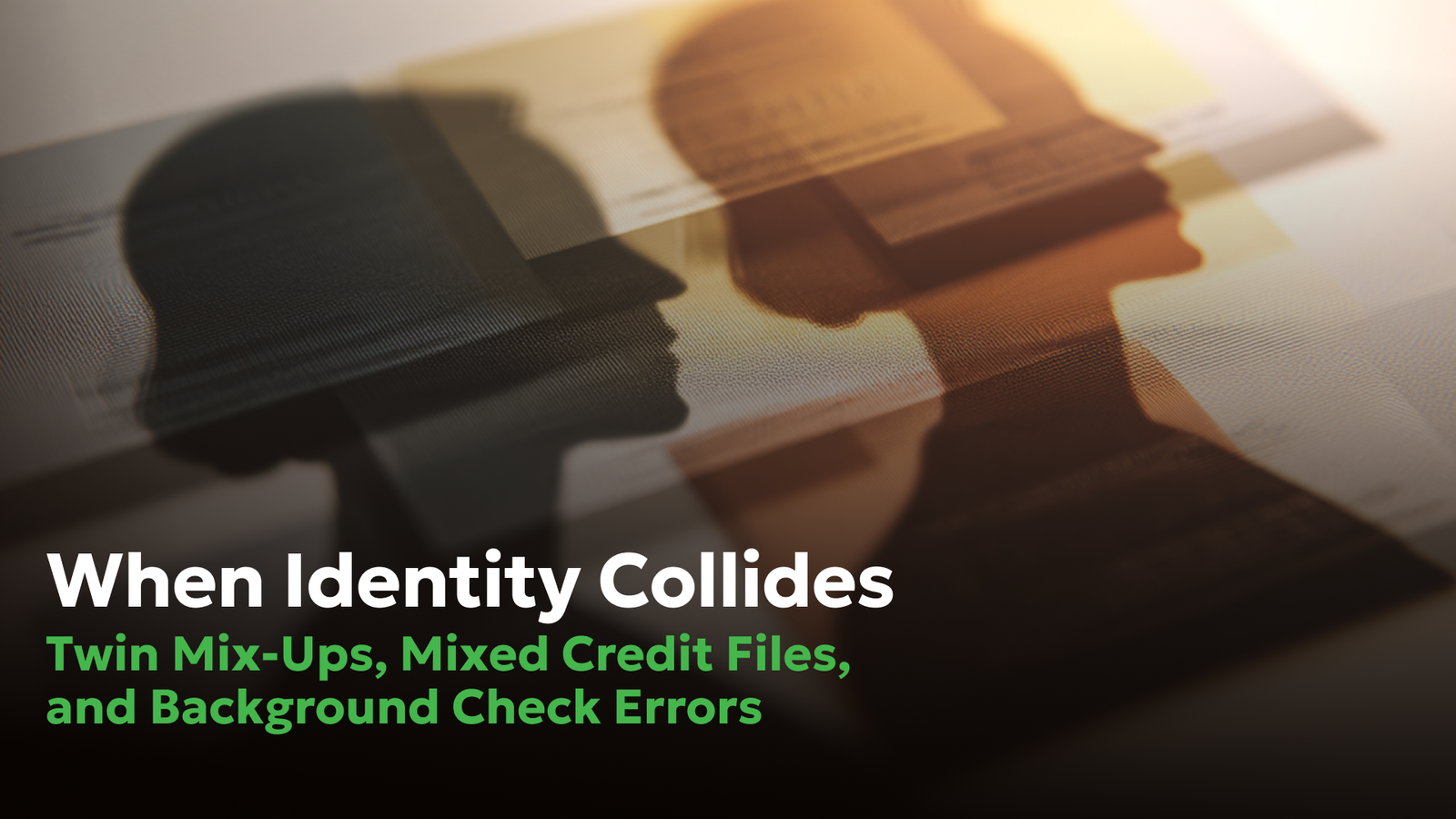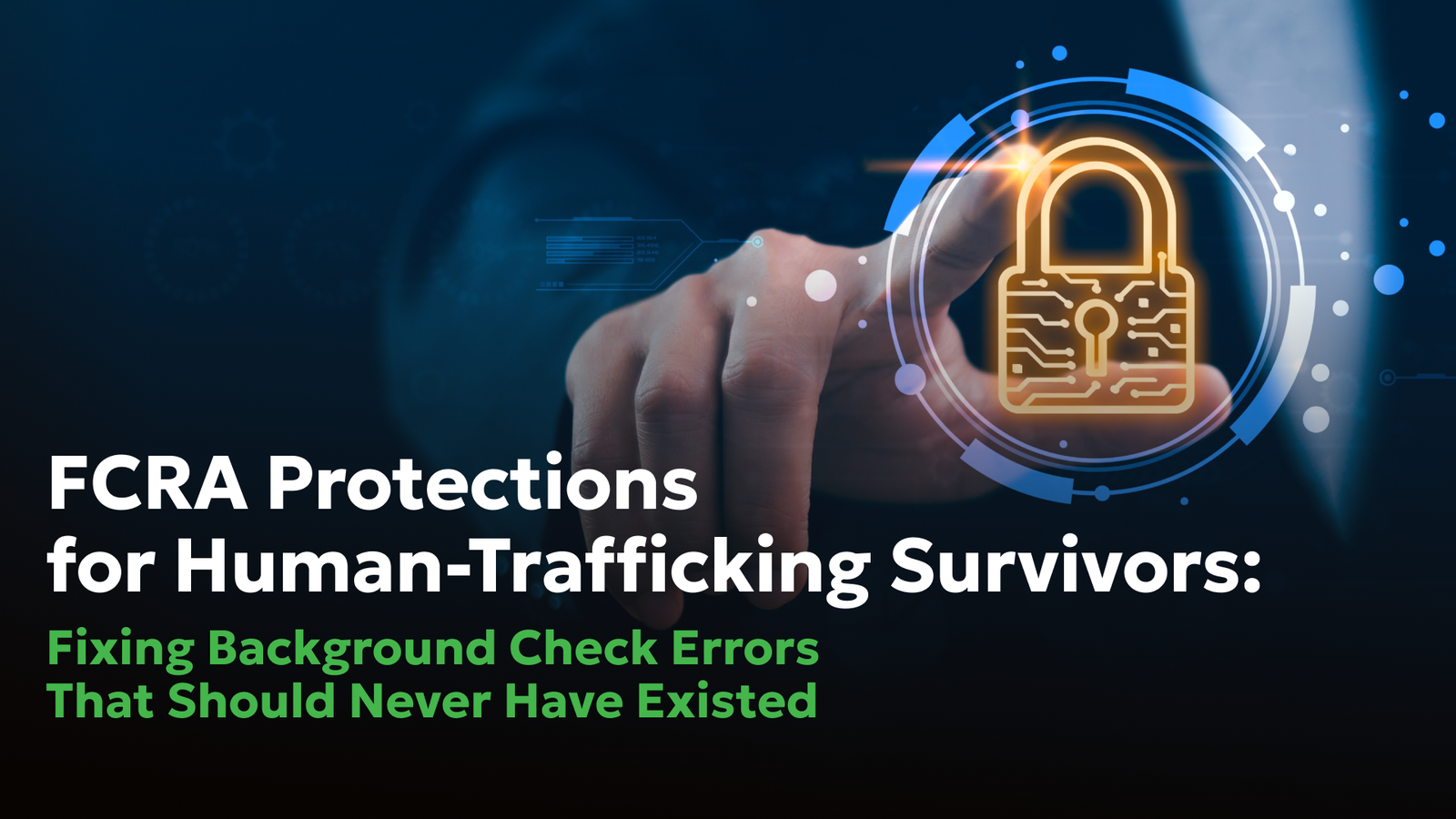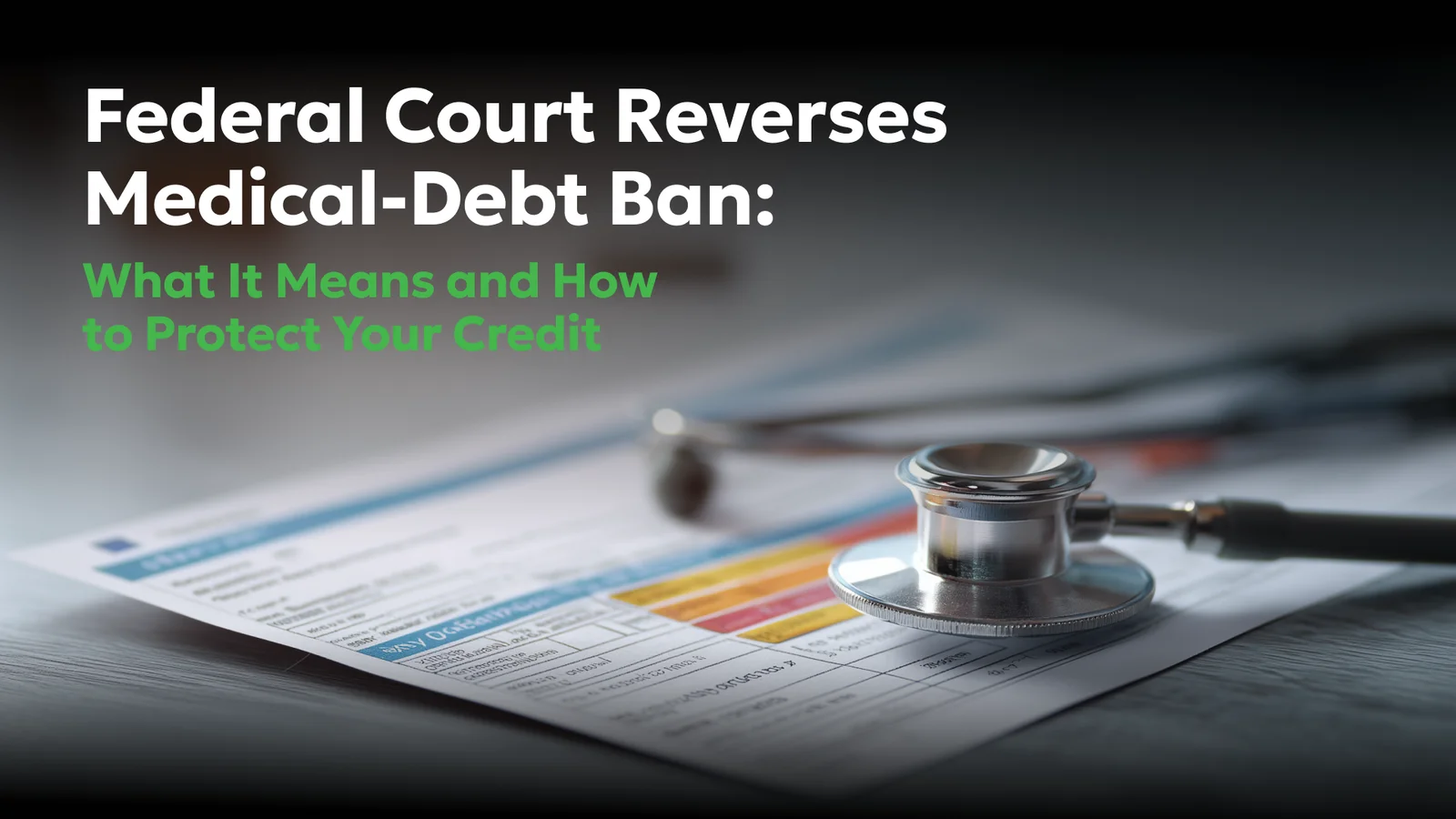Most Common Credit Report Errors and What to Do if You Find Errors
- Blog
- Credit Reporting Inaccuracies
Most Common Credit Report Errors and What to Do if You Find Errors

Fix Credit Reporting Inaccuracies and Rebuild Your Creditworthiness with Consumer Attorneys!
Discover strategies crafted by Consumer Attorneys to increase your credit reporting knowledge! Develop skills that will enable you to tackle credit errors as they come and hold consumer reporting agencies accountable when they mess up. Continue reading to learn how to effectively deal with credit reporting mistakes!
Your credit report is important when you want to make large purchases and open new lines of credit. The reality is that your credit score can be adversely affected by mistakes that are completely out of your control. We explore the most common credit reporting errors, what to do when you notice errors, and who to contact in order to protect your creditworthiness.
What are the Three Most Common Credit Report Errors?
- Wrong Payment History: Incorrect payment history errors occur when your credit report shows past due or unpaid marks that were actually paid on time. These errors might result in lowering your credit score even if the mistakes are a result of consumer reporting agency (credit agency) errors.
- Incorrect Balance Reporting: Typically, wrong balance reporting happens when your credit report reports your outstanding account balances as being more than the actual amount.
- Old Accounts: If you opened and were delinquent on an account over seven years ago, those accounts are subject to a seven-year limitation per the Fair Credit Reporting Act (FCRA). It’s highly likely that the credit agency reporting the old accounts do not actually have your most up-to-date information and instead of the accounts being reported as either closed or paid off, they are instead still showing up as if the debt is still owed.
What Causes Common Credit Reporting Errors?
Errors in credit reporting are caused by everything from typos to more serious issues like identity theft. Other causes may include data entry mistakes or human errors like typos or entering wrong dates for your payment due dates. Even the “smallest” credit reporting errors can cause your credit score to suffer and you have a legal right to have the errors removed and to seek help from credit dispute lawyers when you deserve compensation for the harm the errors caused you.
Additionally, errors can include identity theft and fraud which occurs when a thief steals your sensitive information in order to make unauthorized transfers and open up new accounts using your identity. ID theft and fraud can lead to a decrease in your credit score and creditworthiness. Furthermore, you may experience mixed credit files when credit agencies mistakenly attach your information to another consumer's report when multiple people have a name or address similar to yours, and instead of verifying the information, the credit agencies mix your credit file with other consumers’ causing huge issues!
Finally, outdated information is a common error that can appear on your report for several reasons including but not limited to, your address changed, you got married and changed your name, your banks or creditors failed to update your credit report with the most accurate information. If for some reason you had a life change (which most people do), credit agencies do not always thoroughly review and report your most updated information and they continue reporting old information even after consumers report the changes directly to the bureaus.
How to Prevent Credit Reporting Errors
While it may be challenging to completely eliminate credit reporting errors, there are steps you can take to minimize their occurrence. Here are some tips to help prevent credit reporting errors:
- Regularly Monitor Your Report: Frequently monitoring your credit report by checking it regularly can help you detect errors and dispute errors quickly which helps lessen damage caused to your report.
- Review Account Statements: Reviewing your account statements for incorrect information helps to implement checks and balances. Before your creditors and banks have the opportunity to report mistakes to the bureaus, you can catch them and have your creditors fix them beforehand.
- Be Proactive Against Identity Theft: Identity theft is a global problem and it continues to cause major issues for consumers and their credit files. Thieves have a tougher time stealing your identity and financial accounts if you take preventative steps to safeguard your information including shredding all sensitive documents, protecting your social security number, using a password manager, regularly changing your passwords, consistently updating your computer and phone software, and not falling victim to email scams and phishing attempts.
- Dispute Errors: If you monitor your credit regularly and you notice errors, you should dispute the mistakes in a timely manner. The sooner you dispute errors, the less harm there will be to your credit report.
What to Do if You Find Common Errors on Your Credit Report
If you find mistakes contained in your credit report, it is important that you take immediate action in order to prevent as much negative impact as possible.
You can start by contacting an attorney. If your rights are violated, you should seek the assistance of consumer protection attorneys. A lawyer can look at your case through a different lens, help you find errors and common inaccuracies, advise you of your rights, and assist you with the dispute process. You should then dispute the errors. A lawyer will assist you with the dispute process. Generally, the process begins with pinpointing the mistakes, gathering all of your supporting evidence, writing a letter to the credit agency, and sending the letter via certified mail. We suggest certified mail because it requires you to waive less rights than filing online. The credit agency will have about 30-45 days to respond to the dispute.
Unfortunately, it can be difficult to have the disputes removed because sometimes the credit agencies refuse to remove them. If that is the case and you’ve been harmed as a result, you have a right to file a lawsuit and seek money for the harm you’ve suffered.
Do You Want to Challenge Errors that Appear on Your Credit Report?
Good! We can help with that. Contact us and one of our experienced consumer protection attorneys will provide you with a confidential case evaluation. You have a right to dispute uncommon and common types of credit report errors and seek compensation when you’ve been harmed. Contact us via phone 1-877-615-1725, online via our LIVE chat feature which you can access 24-7, and email us at info@consumerattorneys.com.
Frequently Asked Questions
It is critical that once you discover an issue in your credit report, you should dispute and resolve the situation immediately. One of the first steps is to get in contact with an attorney for assistance. They will walk you through the dispute process which includes pointing out the errors, contacting the credit bureaus (Experian, Equifax, and TransUnion), writing a letter of dispute, mailing it certified mail, and then waiting about 30-45 days to receive a response. It’s important to monitor the dispute process after you mail your letter. If the credit bureaus fail to respond within the allowed timeframe, they will be violating federal law.
Not all mistakes on credit reports are considered to be “common errors” and some are actually not common at all. However, generally speaking, credit report errors occur very often and are not as rare as many consumers consider them to be. Per federal statistics, close to one of every five consumers in America has one or more errors contained in one of their credit reports. These mistakes happen for a variety of reasons including everything from misspelled names, wrong addresses, and more! Unfortunately, even though mistakes are often not the fault of consumers, consumers pay by having their credit scores lowered overtime.
Resolving a credit report inconsistency requires the ability to effectively determine if there are errors and then address each error according to what is required by law. Common credit report mistakes including misspelled names, inaccurate addresses may be easier to fix than a mixed credit file or identity theft errors. Nevertheless, the dispute process must be followed with specificity and if it is not, there can be delays in removing the errors. It’s important to get help from credit dispute attorneys in order to seamlessly have the errors removed and also seek compensation for the harm errors caused you.


Daniel Cohen is the Founder of Consumer Attorneys. Daniel manages the firm’s branding, marketing, client intake and business development efforts. Since 2017, he is a member of the National Association of Consumer Advocates and the National Consumer Law Center. Mr. Cohen is a nationally-recognized practitioner of consumer protection law. He has a we... Read more
Related Articles




R
ONGS™You pay nothing. The law makes them pay.







